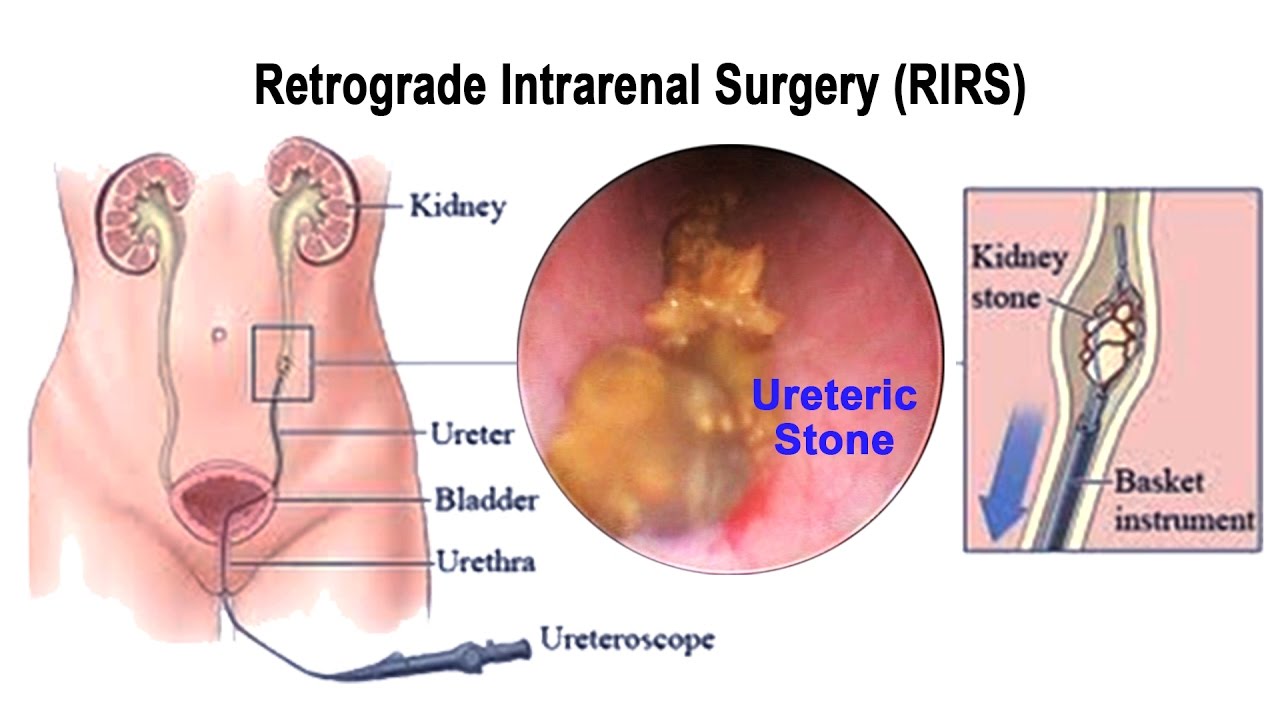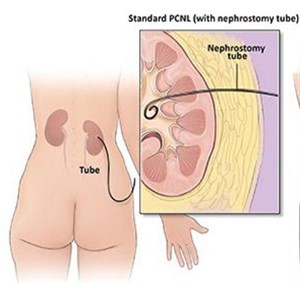Medical Treatment
A doctor prescribes certain medications to help prevent calcium and uric acid stones. These medicines control the amount of acid or alkali in the urine, key factors in crystal formation. The medicine allopurinol may also be useful in some cases of hyperuricosuria. We usually try to control hypercalciuria, and thus prevent calcium stones, by prescribing certain diuretics, such as hydrochlorothiazide. These medicines decrease the amount of calcium released by the kidneys into the urine by favoring calcium retention in bone. They work best when sodium intake is low.
PCNL: For kidney and ureteral stones that are too large (usually larger than 2 centimeters), too numerous, or too dense to be treated by extracorporeal shock wave lithotripsy (ESWL) or ureteroscopy, PCNL (percutaneous nephrolithotomy or stone extraction) offers a minimally invasive method of removing these stones.
What are the advantages?- Allows for large or complicated stones to be treated in a minimally invasive fashion, which in the past this would have necessitated a large incision and longer hospital stay.
- Hospital stay is now 2-4 days, and the out of hospital recovery time is significantly shorter than the traditional open surgical approaches.
- Quicker return to work.
RIRS: RIRS (retrograde intrarenal surgery): Retrograde intrarenal surgery (RIRS) is a procedure for doing surgery within the kidney using a viewing tube called a fiberoptic endoscope. The scope thus is moved retrograde (up the urinary tract system) to within the kidney (intrarenal). This is our specialty. We have latest state of the art technology.
The following list details the preferred equipment and materials for ureterorenoscopy.
- Fluoroscopy ( C-arm)
- Ureteroscopes, rigid/flexible
- Guidewires (a variety)
- 5 fr ureteric catheter
- Contrast medium
- Ureteric access sheath
- Holmium :YAG laser (with laser fibre, 365 or 200 ìm)
- Stone baskets (a variety)

ESWL: For certain kidney stones depending on size and location, doctor recommend a procedure called extracorporeal shock wave lithotripsy (ESWL).
LithotripsyLithotripsy is a procedure that uses shock waves to break a kidney stone into smaller pieces that can be more easily expelled from the body. The device used for this procedure is called a Lithotripter.


